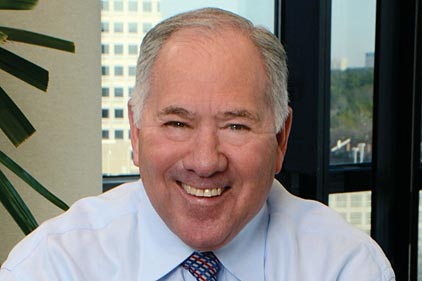
|
| Richard D. Alaniz |
When California Gov. Jerry Brown recently signed legislation requiring paid sick days for millions of workers across the state, he declared it a victory for employees. “Whether you’re a dishwasher in San Diego or a store clerk in Oakland, this bill frees you of having to choose between your family’s health and your job,” said Brown at the time of the September signing. “Make no mistake, California is putting its workers first.”
Under the Healthy Workplaces, Healthy Families Act of 2014, California employers will be required to provide paid sick leave to employees who work 30 or more days within a year from the start of employment. Employees will earn a minimum of one hour of paid sick leave for every 30 hours worked. Luckily, employers can cap the amount of paid sick leave in any given year to three days. The law takes effect July 1, 2015.
While Brown touted the benefits of the new law for employees, the California Chamber of Commerce named it one of the state’s top “job killers.” According to the group, the new law comes on top of other regulatory and legal burdens, including an increase in the state’s minimum wage, rising workers’ compensation rates, loss of the federal unemployment insurance credit, growing energy costs, and higher health insurance expenses associated with the Affordable Care Act. “California employers cannot absorb all these costs and be forced to provide paid sick leave as well, without cutting other costs, such as labor,” the group warned even before the bill became law. Instead, the group unsuccessfully called for California legislators to incentivize paid sick leave, instead of requiring it.
With the new law, California joins Connecticut among states that require employers to offer workers paid sick leave. A growing number of cities have similar laws, including New York and Seattle, and a dozen other jurisdictions have at least considered the idea. Along with paid leave, many employers are also subject to federal laws that allow for unpaid time off to deal with family and medical issues.
When it comes to state and local laws, California often leads the way for the rest of the country. After all, San Francisco became the first jurisdiction in the country to guarantee access to paid sick leave in 2007. Along with federal laws that control unpaid time off and absences, companies must prepare for how actual and potential requirements for paid sick leave will impact their operations.
A Growing Trend for Paid Sick Leave
Nearly 40 million Americans, or about 40 percent of the workforce, are currently employed in positions that do not offer paid sick leave, according to the Economic Policy Institute. Any mandated changes to those current numbers could have significant fall out for employers and employees alike.
For employers, the requirement for paid sick leave will add extra layers of cost, record-keeping, and staffing. The burdens of mandated sick leave can hit small businesses and those with small profit margins and many part-time and seasonal employees particularly hard.
Other Leave Requirements
While no national laws require paid sick leave, other regulations mandate unpaid time off in many circumstances, including the Family and Medical Leave Act (FMLA).
FMLA entitles eligible employees of covered employers to take unpaid, job-protected leave for certain family and medical reasons. Eligible employees are entitled to 12 workweeks of leave in a 12-month period for circumstances that can include the birth of a child, to care for a spouse with a serious health condition, or to deal with their own serious health conditions. Under FMLA, employees are also entitled to 26 workweeks of leave during a single 12-month period to care for a covered service member with a serious injury or illness if the eligible employee is the service member’s spouse, son, daughter, parent, or next of kin.
Among the many FMLA provisions employers must grapple with are “intermittent and reduced schedule” leave. Under this type of leave, employees can take their leave on an intermittent basis or to work a reduced schedule under certain circumstances. According to the U.S. Department of Labor, an intermittent/reduced schedule leave may be taken when medically necessary to care for a seriously ill family member or because of the employee’s serious health condition.
When it comes to an intermittent/reduced schedule, only the amount of time off actually taken can be charged as FMLA leave. Employers can’t require employees to take more FMLA leave than necessary, in order to deal with the circumstances that cause the need for leave. Employers may account for FMLA leave in the shortest period of time that their payroll systems use, provided it is one hour or less.
When employees know ahead of time that they will need intermittent or a reduced schedule, they need to work with their employers to schedule that, so they don’t cause undue disruptions (subject to the approval of the employee’s health care provider).
Along with FMLA, companies must also factor in the Americans with Disabilities Act (ADA) when considering time-off policies. The U.S. Equal Employment Opportunity Commission (EEOC) is taking an increasingly hard look at employers that require “no-fault” attendance policies that don’t factor in employees who need time off to cope with their disabilities. In May 2014, the EEOC charged AutoZone Inc. with violating federal law through its nationwide attendance policy that didn’t accommodate some disability-related time off.
According to the EEOC, from 2009 until at least 2011, AutoZone assigned employees “points” when they called in sick for work or left early. Twelve points resulted in an employee’s termination. The EEOC claims that qualified employees with disabilities who had only a “modest” number of absences related to their disabilities lost their jobs. As one example, the EEOC pointed to an Illinois employee with Type 2 diabetes who had to leave work early occasionally because of insulin reactions. When the employee racked up absences under the points system, that employee was fired. The EEOC brought the suit against AutoZone under Title I of the ADA, which prohibits disability discrimination in employment, and under Title V of the ADA, which bars retaliation for reporting such discrimination.
“The obligation to provide reasonable accommodations for qualified individuals with disabilities has been the law of the land for over two decades, and businesses large and small, operating coast to coast have found ways to bring their operations into compliance with the law,” said John Hendrickson, regional attorney for the EEOC’s Chicago District. “So it is especially disappointing any time a huge national employer with tens of thousands of employees repeatedly engages in unlawful discrimination against individuals with disabilities and declines to share responsibility for maintaining a level playing field for disabled American workers.”
Preparing for Paid and Unpaid Leave
As more states and cities consider requiring paid sick leave, and as federal agencies crack down on companies they deem in violation of federal laws around unpaid leave, employers need to prepare for increased enforcement and new regulations:
• Stay up to date on potential changes to legislation
Proponents of paid sick leave may try to use the new California law to expand into other cities and states. Employers who currently don’t operate in cities and states with paid sick leave should be carefully tracking any legislation that could impact any of their operations. They should be consulting closely with human resources and legal counsel to stay on top of new developments. Local and national business groups can also be excellent sources of information and advocacy on these types of movements.
• Review current policies to make sure they are compliant
For employers in California and other locations that are now requiring paid sick leave, companies may face tremendous burdens when it comes to compliance with the new law. For example, employers must make sure they have record-keeping policies in place to accurately document who is eligible for time off and who has taken days off. Payroll systems will need to be updated to add in all the employees who will now get paid sick leave.
In light of the aggressive enforcement approaches by the EEOC, companies should also take the opportunity to review all of their time-off policies under FMLA and the ADA.
• Update training manuals and processes
If policies need to change based on new laws or regulatory focuses, managers and supervisors should receive training on how to respond appropriately. Employees will also need to be updated on their new rights. The company should work closely with their attorneys to make sure changes are relevant, legal, and effective.
• Review budgets and staffing
Any changes to leave policies could have a dramatic impact on how companies keep operations running when workers call in sick. By planning ahead, employers may be able to blunt some of the impact of these changes.
Companies across the country are facing new burdens imposed by lawmakers and regulators. For many companies, paid and unpaid time off is becoming an increasingly important consideration. Employers can minimize risk and cost by planning ahead, understanding their obligations, and working with the experts, both internal and external, who can guide them through the process.
Publication date: 12/22/2014
Want more HVAC industry news and information? Join The NEWS on Facebook, Twitter, and LinkedIn today!











